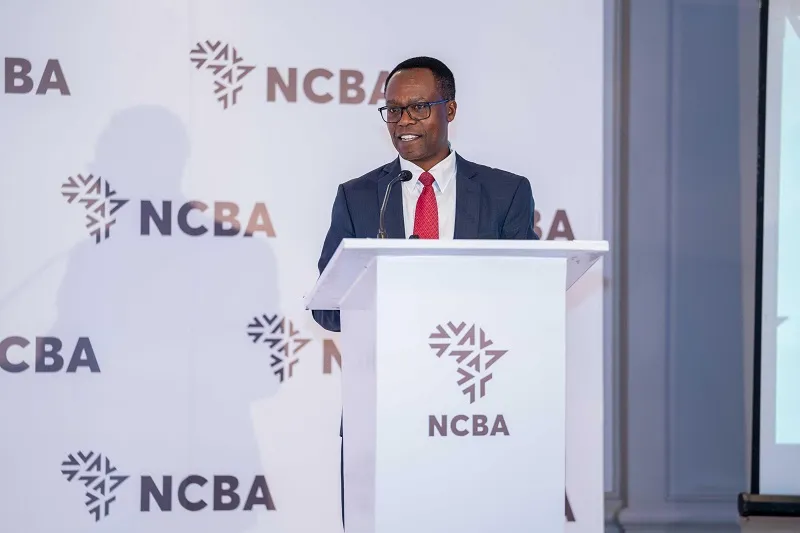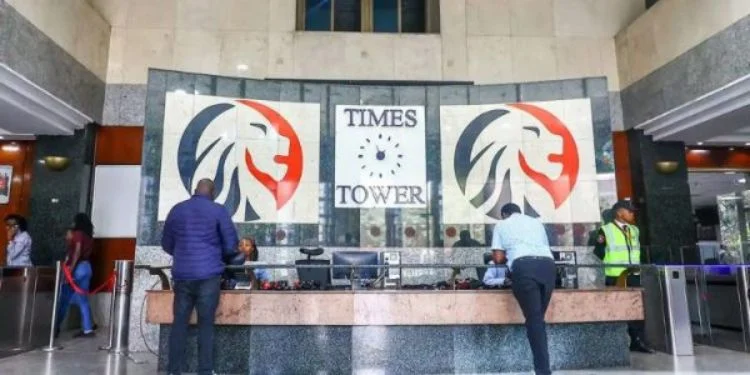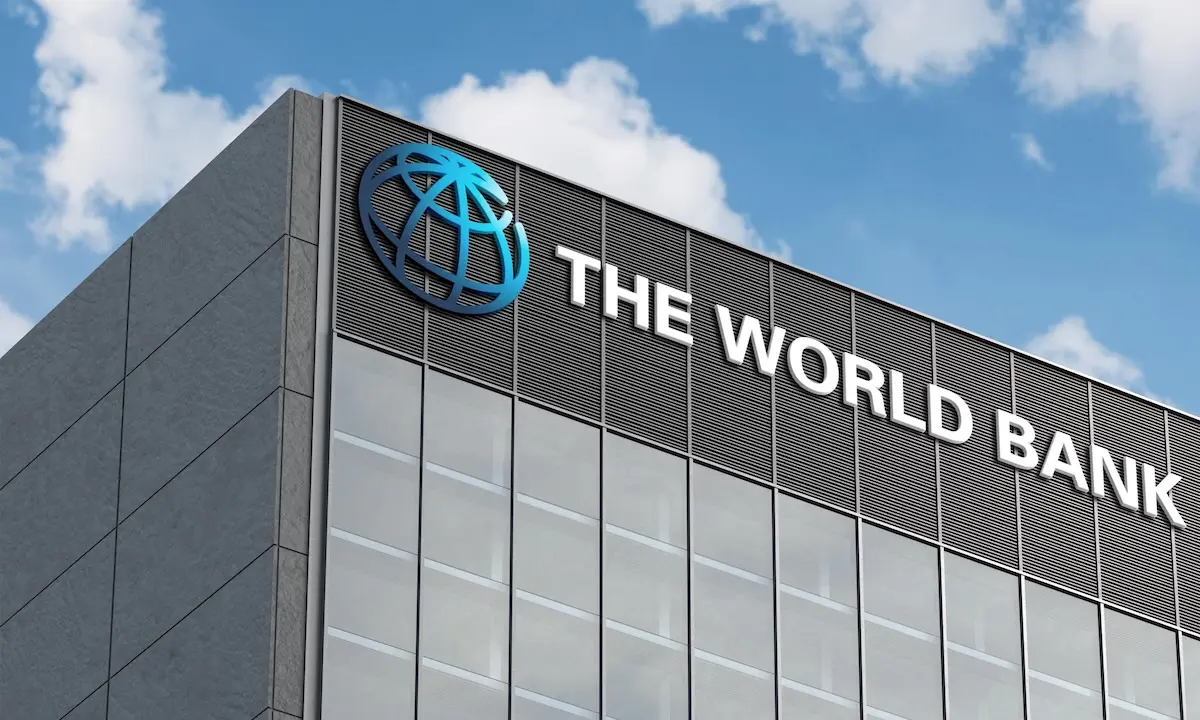Shares of NCBA Group Plc experienced a dramatic surge on the Nairobi Securities Exchange (NSE) on Tuesday, October 14, 2025, climbing from KSh 69 to KSh 76 as news emerged that Africa’s banking giant Standard Bank Group is in advanced discussions to acquire the Kenyan lender. The sharp price movement reflects investor optimism about the potential creation of one of Kenya’s largest banking entities and the premium that Standard Bank may be willing to pay to expand its footprint in East Africa’s largest economy.
Build the future you deserve. Get started with our top-tier Online courses: ACCA, HESI A2, ATI TEAS 7, HESI EXIT, NCLEX-RN, NCLEX-PN, and Financial Literacy. Let Serrari Ed guide your path to success. Enroll today.
Market Reaction Signals Strong Investor Confidence
The market’s enthusiastic response to the acquisition rumors was evident in both trading volumes and price action. NCBA’s stock climbed by an impressive 9.7% during Tuesday morning trading, reaching a record high of KSh 76.25 per share. This represents a continuation of the stock’s remarkable performance over the past year, with shares having surged 73% over the preceding twelve months, significantly outperforming the broader market indices.
The sustained price appreciation reflects not only the takeover speculation but also NCBA’s strong fundamental performance, successful integration of its legacy entities, and growing market share across its operational footprint in East Africa. The bank has demonstrated consistent profitability, robust asset quality, and impressive digital banking adoption rates that make it an attractive acquisition target for regional expansion strategies.
Interestingly, Stanbic Bank Kenya’s shares also responded positively to the news, though more modestly, edging up 0.3% to KSh 199. Over the past year, Stanbic shares have appreciated by 65%, reflecting the bank’s own strong performance and strategic positioning. The positive market reaction for both entities suggests that investors view the potential combination as value-creating rather than dilutive, a crucial factor in determining whether such transactions ultimately proceed.
Details of the Potential Mega-Merger
According to sources familiar with the matter who spoke to Bloomberg on condition of anonymity, Standard Bank Group, through its Kenyan subsidiary Stanbic Bank Kenya, is actively pursuing the acquisition of NCBA Group Plc. The sources emphasized that while discussions are ongoing and progressing, there remains no guarantee that a final transaction will be reached. Both parties are reportedly aiming to conclude their deliberations within the coming months, suggesting that negotiations have advanced beyond preliminary exploratory phases.
If successfully completed, the merger would create a formidable banking institution with combined total assets estimated at approximately KSh 1.1 trillion, equivalent to roughly $8.5 billion at current exchange rates. This scale would position the merged entity as Kenya’s third-largest bank by total assets, trailing only behind the country’s two dominant players: Equity Group Holdings Plc and KCB Group Plc.
The strategic rationale for such a combination appears compelling from multiple perspectives. For Standard Bank, acquiring NCBA would provide immediate scale in the Kenyan market, access to NCBA’s extensive retail customer base, and established operations in other East African markets including Uganda, Tanzania, Rwanda, and Ivory Coast. For NCBA shareholders, a transaction at a premium to current market prices would reward their investment while providing access to Standard Bank’s continental network, technology platforms, and capital resources.
NCBA’s current market capitalization stands at KSh 114.5 billion, representing a substantial transaction size that would rank among the largest banking sector deals in Kenya’s history. The valuation implies a price-to-book ratio that reflects investors’ confidence in the bank’s asset quality, earnings trajectory, and strategic positioning. Any acquisition premium would likely need to be justified through identified cost synergies, revenue enhancement opportunities, and strategic value creation.
Leadership Maintains Strategic Silence
As is customary in such sensitive negotiations, both NCBA’s Chief Executive Officer John Gachora and Stanbic’s CEO Joshua Oigara have declined to comment publicly on the matter. Oigara, who previously served as CEO of KCB Group before moving to Stanbic, brings extensive experience in Kenyan banking and has been instrumental in strengthening Stanbic’s competitive position since assuming leadership.
Standard Bank Group’s corporate communications team has similarly maintained a disciplined approach to information disclosure, stating that any official communication regarding potential transactions would be made through appropriate regulatory channels in accordance with securities laws and listing rules. This measured response is standard practice for publicly traded companies involved in merger discussions, as premature disclosure can affect negotiations, share prices, and regulatory approval processes.
The Capital Markets Authority (CMA), which regulates Kenya’s securities markets, requires listed companies to make timely disclosure of material information that could affect investment decisions. However, companies are also permitted to maintain confidentiality during genuine negotiations provided that trading remains orderly and no selective disclosure occurs. The surge in NCBA’s share price suggests that information has leaked to the market despite efforts to maintain confidentiality, a common occurrence in high-profile transactions.
Kenya’s Banking Sector Consolidation Wave
The potential NCBA-Standard Bank combination represents the latest chapter in an accelerating wave of consolidation sweeping through Kenya’s banking sector. Industry observers have long predicted that Kenya’s banking landscape, which features dozens of institutions competing for market share, would eventually undergo significant consolidation driven by regulatory pressures, technology investments, and economies of scale.
Access Bank Acquires National Bank of Kenya
A prominent recent example of this consolidation trend occurred in April 2025, when the Central Bank of Kenya (CBK) announced that Nigeria’s Access Bank PLC had acquired 100 percent of National Bank of Kenya (NBK) from KCB Group PLC. This transaction followed a careful regulatory approval process, with the Central Bank granting approval on April 4, 2025, under Section 13(4) of the Banking Act, and the National Treasury Cabinet Secretary providing additional approval on April 10, 2025, in accordance with Section 9 of the Banking Act.
The Access Bank-NBK transaction involved complex asset and liability transfers, with the Central Bank separately approving the transfer of certain NBK assets and liabilities to KCB Bank Kenya Limited on April 4, 2025. This structure allowed KCB to extract value from its troubled NBK subsidiary while ensuring continuity of banking services for NBK customers and protecting depositor interests.
For Access Bank, the NBK acquisition provided an immediate operational footprint in Kenya, including banking licenses, branch networks, and customer relationships that would have taken years to build organically. The transaction reflects Access Bank’s broader pan-African expansion strategy and represents the growing role of Nigerian financial institutions in East African markets.
Moniepoint Enters Kenyan Market
The consolidation trend extends beyond traditional banks to include fintech companies seeking to establish or expand their presence in Kenya’s dynamic financial services market. In June 2025, Nigerian fintech company Moniepoint Inc. received approval from the Competition Authority of Kenya (CAK) to acquire a 78% controlling stake in Sumac Microfinance Bank.
This transaction represents a significant development in Kenya’s microfinance sector and illustrates how technology-driven financial services providers are increasingly acquiring traditional banking licenses to expand their service offerings. The approval came with conditions requiring Moniepoint to retain all existing Sumac employees under their current terms, protecting jobs while facilitating the ownership transition.
Moniepoint’s entry into Kenya through acquisition rather than organic expansion reflects the competitive advantages of established banking infrastructure, regulatory licenses, and customer relationships. For innovative fintech companies with strong technology platforms and business models, acquiring existing banks or microfinance institutions can provide a faster and more cost-effective market entry strategy than building operations from scratch.
One decision can change your entire career. Take that step with our Online courses in ACCA, HESI A2, ATI TEAS 7, HESI EXIT, NCLEX-RN, NCLEX-PN, and Financial Literacy. Join Serrari Ed and start building your brighter future today.
Understanding Standard Bank Group
Standard Bank Group stands as Africa’s largest bank by both total assets and market capitalization, with an extensive operational footprint spanning over 20 Sub-Saharan African countries and global centers in four strategic locations. Headquartered in Johannesburg, South Africa, the banking giant has built a reputation as a systemically important financial institution on the African continent.
The group’s comprehensive service portfolio encompasses retail banking for individual consumers, corporate banking for businesses of all sizes, investment banking services including capital markets and advisory, and insurance products through its Liberty Holdings subsidiary. This diversified business model has enabled Standard Bank to weather economic cycles and maintain profitability even during challenging periods.
Standard Bank’s African strategy has historically focused on establishing strong positions in key markets while maintaining a selective approach to expansion. The potential acquisition of NCBA would represent a significant bet on Kenya’s economic prospects and Standard Bank’s ability to leverage its continental scale to compete effectively against well-entrenched local competitors.
In Kenya specifically, Standard Bank operates through Stanbic Bank Kenya, which has gradually built market share and brand recognition despite competing against dominant players like Equity Bank, KCB, and Co-operative Bank. Acquiring NCBA would dramatically accelerate Stanbic’s competitive position, potentially transforming it from a mid-tier player to a top-three institution virtually overnight.
NCBA Group: A Product of Strategic Merger
NCBA Group Plc represents one of Kenya’s most successful banking mergers, formed in 2019 through the combination of NIC Group and Commercial Bank of Africa (CBA). The merger created one of Kenya’s largest banks by assets and represented a strategic response to competitive pressures, regulatory capital requirements, and the need for scale to support technology investments.
Headquartered in Nairobi, NCBA has successfully integrated the legacy operations of its predecessor entities and expanded its regional footprint to include operations in Uganda, Tanzania, Rwanda, and Ivory Coast. This East African presence provides diversification benefits and exposure to some of the continent’s faster-growing economies, making NCBA an attractive target for institutions seeking regional expansion.
Digital Banking Innovation
NCBA has distinguished itself through innovative digital banking solutions that have driven customer acquisition and transaction volumes. The bank is particularly well known for M-Shwari, a groundbreaking mobile savings and loan product developed in partnership with telecommunications giant Safaricom. M-Shwari revolutionized access to formal financial services in Kenya by enabling millions of Kenyans to open bank accounts, save money, and access credit entirely through their mobile phones without visiting physical branches.
The M-Shwari platform leverages M-PESA’s extensive agent network and customer base to provide financial services at minimal cost, using alternative credit scoring mechanisms based on mobile money transaction history rather than traditional credit bureau data. This innovation has been widely studied and replicated across Africa and other emerging markets as a model for digital financial inclusion.
Beyond M-Shwari, NCBA has invested heavily in digital banking platforms, mobile applications, agency banking networks, and core banking system upgrades. These technology investments position the bank well for continued growth in an increasingly digital financial services landscape and represent valuable assets that would transfer to any acquirer.
Recent Corporate Developments at NCBA
NCBA has experienced some management changes in recent months that may be relevant to the acquisition discussions. The bank recently announced that its Company Secretary had resigned with immediate effect, a development that sparked speculation about potential corporate governance issues or strategic changes. While the resignation was not officially linked to acquisition discussions, such timing inevitably invites scrutiny from market observers and analysts.
Changes in key management positions during merger negotiations are not uncommon, as companies prepare for new ownership structures, integrate leadership teams, or respond to shifting strategic priorities. However, investors and regulators typically monitor such developments closely to ensure that proper governance standards are maintained and that stakeholder interests are protected.
Financial Performance Context
Kenya’s major banks have posted strong financial results in 2025, with institutions including KCB, Co-operative Bank, and NCBA reporting billions in profits during the first half of the year. This robust performance reflects improving economic conditions, strong loan demand, expanding net interest margins, and effective cost management by leading institutions.
NCBA’s financial performance has been particularly impressive, with the bank demonstrating strong revenue growth, improving asset quality metrics, and expanding market share across its key business lines. These results have contributed to the 73% share price appreciation over the past year and make the bank an attractive acquisition target for institutions seeking exposure to Kenya’s growing economy.
The banking sector’s strong profitability has been supported by the Central Bank of Kenya’s monetary policy stance, which has balanced inflation control with support for economic growth. Interest rate policies, liquidity management, and regulatory frameworks have created an environment conducive to banking sector profitability while maintaining financial stability.
Regulatory Considerations and Approval Process
Any merger between NCBA and Standard Bank would require approval from multiple regulatory authorities, a process that could take several months and involve detailed scrutiny of competitive effects, financial stability implications, and consumer protection considerations.
The Central Bank of Kenya, as the primary banking sector regulator, would need to approve the transaction under the Banking Act. The CBK’s review would examine the merged entity’s capital adequacy, risk management capabilities, governance structures, and compliance with prudential requirements. Given the systemic importance of both institutions, this review would likely be particularly thorough.
The Competition Authority of Kenya would assess whether the merger raises competition concerns, particularly regarding market concentration, barriers to entry, and potential impacts on pricing and service quality. While Kenya’s banking sector remains relatively competitive with multiple significant players, regulators must ensure that consolidation does not create entities with excessive market power.
The Capital Markets Authority would oversee aspects related to shareholder protection, disclosure requirements, and fairness of any offer to NCBA shareholders. If the transaction involves a formal takeover offer, detailed requirements govern the process, timeline, pricing, and information disclosure to ensure that all shareholders receive fair treatment.
Implications for Kenya’s Banking Landscape
If completed, the NCBA-Standard Bank merger would have far-reaching implications for Kenya’s banking competitive dynamics, potentially triggering additional consolidation as other institutions seek scale to compete effectively.
For customers, a larger combined entity could offer enhanced product capabilities, broader branch networks, improved technology platforms, and greater financial strength. However, regulators would need to ensure that competition remains sufficient to drive innovation and maintain reasonable pricing.
For employees, mergers typically involve workforce rationalization as redundant functions are consolidated. However, the complementary nature of NCBA’s retail focus and Stanbic’s corporate and investment banking strengths might limit overlap and preserve employment.
For the broader Kenyan economy, strong and well-capitalized banks are essential for financing investment, supporting small businesses, and facilitating economic growth. A successful merger that creates a more competitive and efficient institution could benefit economic development, provided that appropriate safeguards protect consumer interests.
Conclusion: A Transaction Worth Watching
The potential acquisition of NCBA by Standard Bank represents one of the most significant banking transactions in Kenya’s recent history and could reshape the competitive landscape for years to come. The sharp surge in NCBA’s share price reflects investor confidence that a deal may materialize and that it could occur at an attractive premium to current trading levels.
As discussions continue in the coming months, market participants, regulators, employees, and customers will watch closely for official announcements and concrete details about transaction structure, valuation, regulatory approvals, and integration plans. Whether this mega-merger ultimately proceeds or joins the long list of deals that were discussed but never consummated remains to be seen, but its potential impact on Kenya’s financial sector is undeniable.
For now, NCBA shareholders are enjoying substantial gains as speculation drives the stock to record levels. The coming weeks and months will reveal whether these gains prove justified by a formal offer or whether they represent premature optimism about a transaction that may never materialize. Either way, the story underscores the dynamic nature of Kenya’s banking sector and the ongoing evolution of financial services across the African continent.
Ready to take your career to the next level? Join our Online courses: ACCA, HESI A2, ATI TEAS 7 , HESI EXIT , NCLEX – RN and NCLEX – PN, Financial Literacy!🌟 Dive into a world of opportunities and empower yourself for success. Explore more at Serrari Ed and start your exciting journey today! ✨
Track GDP, Inflation and Central Bank rates for top African markets with Serrari’s comparator tool.
See today’s Treasury bonds and Money market funds movement across financial service providers in Kenya, using Serrari’s comparator tools.
Photo source: Google
By: Montel Kamau
Serrari Financial Analyst
16th October, 2025
Article, Financial and News Disclaimer
The Value of a Financial Advisor
While this article offers valuable insights, it is essential to recognize that personal finance can be highly complex and unique to each individual. A financial advisor provides professional expertise and personalized guidance to help you make well-informed decisions tailored to your specific circumstances and goals.
Beyond offering knowledge, a financial advisor serves as a trusted partner to help you stay disciplined, avoid common pitfalls, and remain focused on your long-term objectives. Their perspective and experience can complement your own efforts, enhancing your financial well-being and ensuring a more confident approach to managing your finances.
Disclaimer: This article is for informational purposes only and does not constitute financial advice. Readers are encouraged to consult a licensed financial advisor to obtain guidance specific to their financial situation.
Article and News Disclaimer
The information provided on www.serrarigroup.com is for general informational purposes only. While we strive to keep the information up to date and accurate, we make no representations or warranties of any kind, express or implied, about the completeness, accuracy, reliability, suitability, or availability with respect to the website or the information, products, services, or related graphics contained on the website for any purpose. Any reliance you place on such information is therefore strictly at your own risk.
www.serrarigroup.com is not responsible for any errors or omissions, or for the results obtained from the use of this information. All information on the website is provided on an as-is basis, with no guarantee of completeness, accuracy, timeliness, or of the results obtained from the use of this information, and without warranty of any kind, express or implied, including but not limited to warranties of performance, merchantability, and fitness for a particular purpose.
In no event will www.serrarigroup.com be liable to you or anyone else for any decision made or action taken in reliance on the information provided on the website or for any consequential, special, or similar damages, even if advised of the possibility of such damages.
The articles, news, and information presented on www.serrarigroup.com reflect the opinions of the respective authors and contributors and do not necessarily represent the views of the website or its management. Any views or opinions expressed are solely those of the individual authors and do not represent the website's views or opinions as a whole.
The content on www.serrarigroup.com may include links to external websites, which are provided for convenience and informational purposes only. We have no control over the nature, content, and availability of those sites. The inclusion of any links does not necessarily imply a recommendation or endorsement of the views expressed within them.
Every effort is made to keep the website up and running smoothly. However, www.serrarigroup.com takes no responsibility for, and will not be liable for, the website being temporarily unavailable due to technical issues beyond our control.
Please note that laws, regulations, and information can change rapidly, and we advise you to conduct further research and seek professional advice when necessary.
By using www.serrarigroup.com, you agree to this disclaimer and its terms. If you do not agree with this disclaimer, please do not use the website.
www.serrarigroup.com, reserves the right to update, modify, or remove any part of this disclaimer without prior notice. It is your responsibility to review this disclaimer periodically for changes.
Serrari Group 2025
















